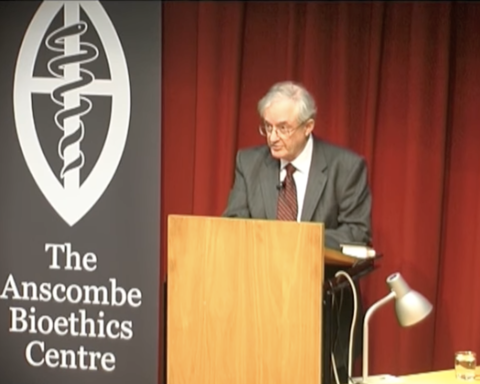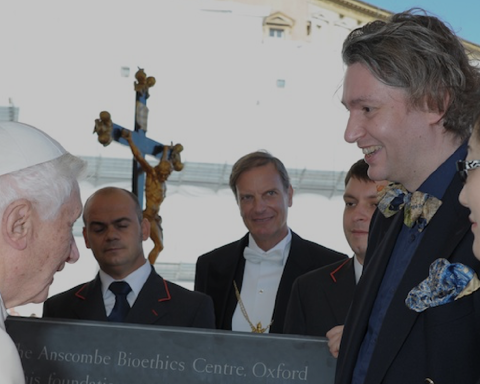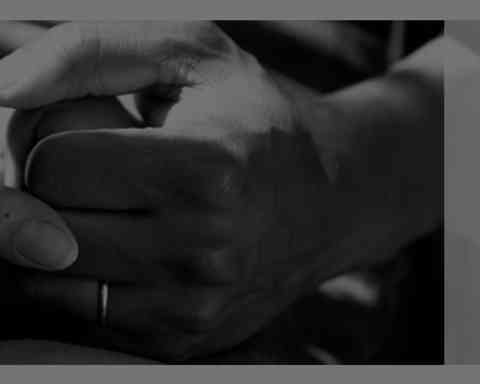Press Statement – Alta Fixsler: Subsidiarity and the Importance of Circumstances
Alta Fixsler – Subsidiarity And The Importance Of CircumstancesThe case of Alta Fixsler [1] seems, at first glance, very similar to those of Charlie Gard, Alfie Evans, Tafida Raqeeb and Pippa Knight. These are all cases where the healthcare team caring for a severely ill child wished to withdraw life-sustaining treatment and the parents wished treatment to continue. While the hospital in the UK was unwilling to continue to provide treatment, in all cases but one [2], an alternative hospital in another G7 country was willing to accept the child. In all cases but one [3], the court declared that it would not be lawful to continue treatment in hospital or to transfer the child to be treated elsewhere.
The Anscombe Bioethics Centre has previously commented on the cases of Charlie Gard [4], Alfie Evans [5], and Pippa Knight [6]. The Centre’s comments have focused on the ethical principles that should guide decision making in such cases [7] and have highlighted problems in the legal reasoning.
One fundamental problem in these cases is the idea that there can be only one option that is in the child’s best interests because “there can only logically be one best option” [8]. The judge therefore seeks to identify what is best for the child independently of the wishes of the parents. However, this approach rests on the mistaken utilitarian idea that moral reasoning is a matter of mathematical calculation. On the contrary, moral choices are typically between options that are good in different ways, where there are several options compatible with virtue and none is “the best” in all respects. There are many ways to live that are morally upright and many decisions a parent may make on behalf of a child that are within reason.
The question that judges should ask is not “What would I do if I were the parent of this child?” but “Is the decision of parents in this case reasonable or does it place the child in undue danger of suffering harm?” Culture and religion have sometimes played a part in these legal cases, whether it is Catholicism (Alfie Evans), Islam (Tafida Raqeeb) or Judaism (Alta Fixsler). This is to be expected because culture and religion shape people’s views about what is reasonable, especially in cases that are matters of life and death. Nevertheless, from a Catholic perspective, what is at issue here is not a question of religion per se. Rather, it is a matter of the responsibility and thus the natural right of parents to make decisions on behalf of their children according to the principle of subsidiarity [9].
The principle of subsidiarity is reflected in the “margin of appreciation” which the European Court of Human Rights shows to nations in how they reconcile perceived tensions between the demands of different human rights [10]. The same principle should, but currently does not, inform the way English judges regard decisions of parents concerning the best of interests of their child. Nevertheless, while this margin of appreciation is wide it has limits. The principle of subsidiarity allows the state to interfere in matters of family life when this is needed to prevent harm. Thus, even if the English law were to reflect this principle, there would be circumstances in which the courts would overrule the parents.
Treatment can and should be withdrawn, where death is not the aim, where the benefits treatment provides are limited, and where the risks or burdens it imposes are excessive. In the case of Alta Fixsler, there is consensus among doctors that her prognosis is very poor, perhaps 24 months, perhaps much less [11]. At the same time there is credible evidence that the current provision of treatment causes her significant distress. Even gentle handling consistently leads to spasms [12]. It is possible to deny that these spasms are experienced subjectively as distressing to Alta [13]. However, empathy requires that we interpret signs of pleasure or pain so as to extend the benefit of the doubt to the person. The judge in the appeal court repeatedly returned to the evidence that the current regime of treatment is causing Alta to suffer pain or distress [14] and that transferring Alta to a hospital in Israel is likely to cause further distress [15].
Although the judgement exhibits some confusion, common in such cases, between the pain or suffering caused by the child’s condition and the pain or suffering caused by the treatment itself [16], it was right for the judge to focused on the acceptability of treatment. On Catholic principles, moral determination is not only a matter of the end and object of an action but also of the circumstances [17]. In decisions relating to life-sustaining treatment, evidence that treatment itself causes pain or distress is a morally relevant circumstance. It is a reason not to impose that treatment, especially if the prospects of benefit are limited.
There can be few things harder to bear than the decision whether to withdraw treatment from a dying child. It is extraordinary that, in the overwhelming majority of such cases, decisions are reached by consensus between parents and healthcare professionals. Only very rarely do such cases lead to conflict that is irresolvable and that ends up in court [18]. When this happens, it is important that courts do not take the decision away from parents except in cases where the decision of the parents would lead to the child suffering significant harm. Whether such action by a court is justified in a particular case depends crucially on the circumstances. Furthermore, even when such action by the court is justified, the inability of doctors and parents to find a common mind still represents a failure of communication and a breakdown of trust. Taking the decision away from the parents cannot but add to their grief.
Our thoughts and prayers are with Alta Fixsler and her parents at this time.
[1] Manchester University NHS Foundation Trust v Fixsler & Ors [2021] EWHC 1426 (Fam) (28 May 2021).
[2] Pippa Knight: Guy’s and St Thomas’ Children's NHS Foundation Trust & Anor v Knight & Anor [2021] EWHC 25 (Fam).
[3] Tafida Raqeeb: Barts Health NHS Trust v Raqeeb [2019] EWHC 2531 (Admin).
[4] Charlie Gard: Doing the Right Thing for the Right Reasons, Press Statement, Anscombe Bioethics Centre, 5 July 2017. https://bioethics.org.uk/press-room/press-statements/press-statement-charlie-gard-doing-the-right-thing-for-the-right-reasons/
[5] Alfie Evans: A Brief Statement of the Fundamental Ethical Principles, Press Statement, Anscombe Bioethics Centre, 2 February 2018: https://bioethics.org.uk/press-room/press-statements/press-statement-alfie-evans-a-brief-statement-of-the-fundamental-ethical-principles/
[6] Pippa Knight: The Benefit of Being Cared for Unaware, Press Statement, Anscombe Bioethics Centre, 4 February 2021: https://bioethics.org.uk/press-room/press-statements/press-statement-pippa-knight-the-benefit-of-being-cared-for-unawares/
[7] The Ethics of Care of the Dying Person, Anscombe Bioethics Centre, 2013: https://bioethics.org.uk/educational-resources/guides-publications/the-ethics-of-care-of-the-dying-person/
[8] Aintree University Hospital NHS Trust v James [2013] UKSC 67, [2014] AC 591, para 24 cited [2021] EWHC 1426, 63.
[9] Catechism of the Catholic Church (1992), 1883; John Paul II Centesimus Annus (1 May 1991), 48.
[10] Gard And Others v The UK: ECHR (13 Jun 2017), 39793/17, [2017] ECHR 559, [2017] ECHR 605, 84.
[11] Op. cit., [2021] EWHC 1426, 44.
[12] Ibid., 79-86.
[13] Ibid., 35.
[14] Fixsler & Anor v Manchester University NHS Foundation Trust & Anor [2021] EWCA Civ 1018 (09 July 2021), 1, 49, 58-63, 86.
[15] Ibid., 47, 91, since the judgement the proposed destination has changed to America but the same considerations would apply.
[16] Ibid., 47, 88.
[17] Thomas Aquinas, Summa Theologiae, 1a2ae, q.18 art. 10.
[18] D.A. Jones, D.R Katz and J. Wyatt, ‘Doctors, dying children and religious parents: dialogue or demonisation?’, Clinical Ethics, March 2013, 8.1:2-4.
Most recent
Anscombe Centre Tribute to John Finnis Upon His CBE Appointment
04 January 2023
The Anscombe Bioethics Centre pays tribute to John Finnis, Professor of Law and Legal Philosophy Eme...
The Anscombe Centre Honours the Memory of the Late Pope Benedict XVI (1927-2022)
03 January 2023
The Anscombe Bioethics Centre would like to honour the memory of the late Pope Benedict XVI. His wit...
Anscombe Centre Statement on Commons HSC Committee Inquiry into Assisted Suicide
15 December 2022
The Anscombe Bioethics Centre comments on the new Inquiry launched by the House of Commons Health an...
Support Us
The Anscombe Bioethics Centre is supported by the Catholic Church in England and Wales, Scotland, and Ireland, but has also always relied on donations from generous individuals, friends and benefactors.



